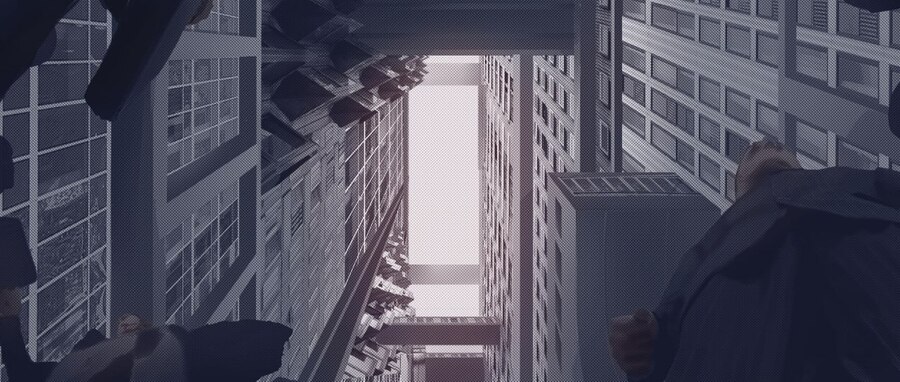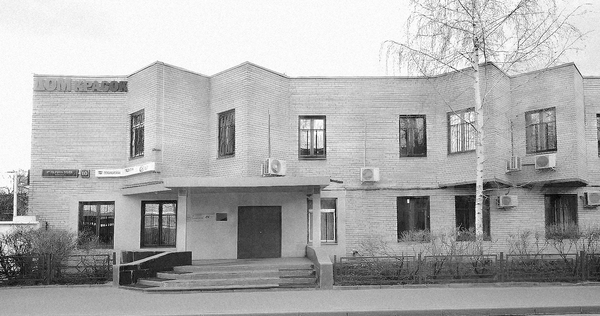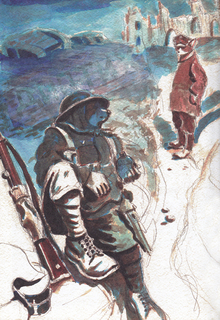
Isoterma: game concept
A game about a huge Moscow office where no one works, but everyone pretends to work. And whoever’s the best at simulating is going up.
Objective of the project

The aim of the project is to highlight the phenomenon of corporate cloaking, where staff simulate activities without real benefit. The secondary objective is to create a game and a siting based on the history and appearance of one of the Moscow buildings.
Cor-ficha
The core of the project is the specific construction of the game process, which involves solving problems that the strimers may have during other games. For example, the integration of strimming chat into the game process makes the audience more involved. The cycle is designed in such a way as to leave the player pauses during which there is no serious need to be absorbed by the game. This is important for strimers: periodic attention must be paid to messages to answer questions or to respond to user behaviour, which cannot be done in a complex, demand-driven gameplay.
Gamelay
Each day lasts eight game hours, during which time the Strimer watches the viewers through the CCTV cameras. Time is uneven: when a micromanager sits behind a desk, it reaches slowly, and when it falls off, it flies undetected. The stripper needs to be balanced between observation and simulation of work (failure) in order to avoid sleeping in the workplace. When you’re working on the interface, there’s a boredom scale. If it were fully filled, the Strimer would fall asleep and miss the necessary vote, which would result in a demotion.
Strimer screen during game
At the end of the day, the clerk’s choice is to be dismissed. Strimer needs to analyze the department’s behavior in a day to find out which clerk was the most off-the-shelf. At the same time, the clerks start their own vote and report on who should be out. Strimer can choose whether to trust his viewers or not. The right decisions lead to a higher level of career, a lower level of error.
Game world
Moscow of the future is a megapolis, which consists entirely of office buildings and communes. The city operates on a strict schedule. Monoton atmosphere and architecture, used to live in Moscow, but with elements of futuristic design and Soviet design. Moscow was faced with overpopulation, which forced people to regenerate and rework the architectural and social experiment of the 1920s and 1930s. Total lack of personal property, schedule communication, and human benefits on coupons. But now no one wanted to build a collective conscience like the «new man»: it was a forced resettlement measure, which nevertheless made it possible to keep the population functioning.
The «Isoterma» building, located in the Moscow district of Moscow, was a model of peace and a venue for the game. This building was built and designed during the years of the experiment and is now being rented into office space.
Story
Strimer is a nameless clerk once raised to the level of a micromanager. He doesn’t want to work, just like the others, but he has to fake his own life inside an office megastructure.
Structure
Strimer starts with the fifth level of the micromanager’s career ladder. Its mission is to achieve a tenth level of career while avoiding real work and ensuring that the effectiveness of the Division is maintained.
One kind of dilation: a cooler
In order to maintain the level of boredom at a safe level, the strimer may lose:
One kind of dilation: smoking
Every dilation is a risk, the system can’t be deceived too often. The authorities may notice and issue a warning. Two warnings mean a reduction in career. Slapping is an engaged game process, each species means a puzzle for a while. The work is a pause during which a strimer can watch from the edge of his eye, but at the same time pay attention to the viewers.
If one day’s strimer reaches the tenth level of his career, he wins, he’s promoted, and he’s leaving the micromanager. If the career level goes down to zero, the chat wins: the micromanager strimmer is down to the clerk level.
Narrative
The details of the game process and design reveal the setup and the issue of the world, which coincides with reality. The player ' s superiors monitor those below: corporate uroboros, where performance is based on monitoring the performance of the tasks, rather than directly performing them. The clerks wear masks. It’s a literal demonstration of corporate cloaking and antitopia, where people don’t have a person or a face, but there’s an indicator of performance.
One kind of dilation: coffee
An alarming surrealism adds something that never explains what the office does. It is not known what is happening or for what, moreover, the tasks of the clerks do not have a reasonable explanation: whether they make a simple report or report to a colleague.
Interactor
Chat is connected to the game process through a game-based website and a division code. At the beginning of each day, an audience can choose whether to work hard, to work negligently, or not at all. There is a burning mechanic: if a chatterer chooses to work three times hard, the button with this choice becomes inaccessible for the fourth time. If for the fourth time it chooses to work negligently, for the fifth time it does not automatically work at all.
Strimer’s department code shows the audience at the beginning of the game.
At the end of the day, each audience selects a clerk who wants to report bad performance and thus participate in the voting. The exterminated clerk is shutting down the website as a result of the selection of the player. In the event that the audience leaves the game early, the clerk under his control remains, but works on his own. The game can also be played with a small number of viewers: free clerks will be replaced by self-contained ones who choose the report and the degree of their own work using the rand.
Open-site viewer screen, through which it affects the conduct of the clerk under his control
Scale
The game offers a high level of replayability due to the diversity of clerk behaviour and the unpredictability of voting. The element of competition between spectators and strimer supports interest in the game. The cortex of mechanics is easily adapted to different settings and scenarios, allowing new versions of the game to be created with minimal changes. This ensures the long-term success of the game, which can then become a franchise.


